Workshop on Good Teaching and Research Practices for Ayurveda Teachers
Ayurveda Network organized a two-day workshop on Good Teaching and Research Practices where thirty assistant professors of Ayurveda were trained in the current trends and recent advances in the fields of research and teaching. The workshop was organized on the 16th and 17th of January, 2020 in the Faculty of Ayurveda, Institute of Medical Sciences, Banaras Hindu University. Thirty teachers participated in the workshop.
16th January 2020
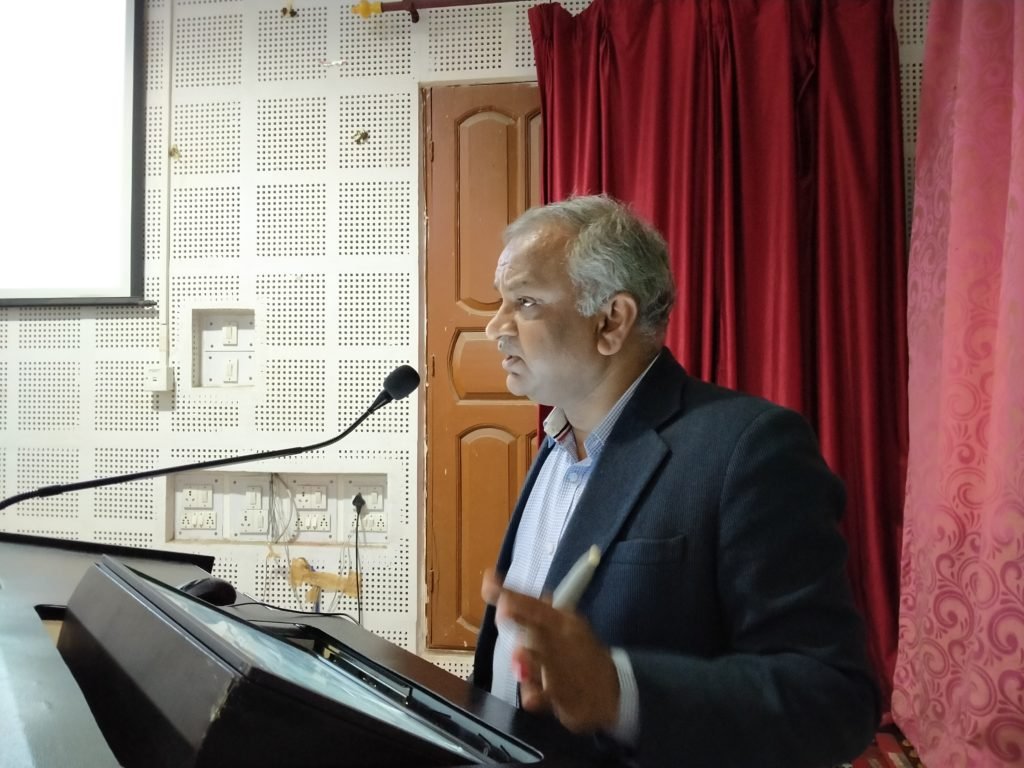 The first day began with a presentation by Prof. Sanjeev Rastogi of State Ayurvedic College, Lucknow. He delved on the good teaching practices and responsibilities of a good teacher and shared his experiences in innovative ways of teaching. He used several examples to show how Ayurveda can be taught differently in a student-centric way. He also emphasized the need for developing good communication skills and becoming a life-long learner to be a successful teacher. He also described the importance of having a healthy student-teacher relationship.
The first day began with a presentation by Prof. Sanjeev Rastogi of State Ayurvedic College, Lucknow. He delved on the good teaching practices and responsibilities of a good teacher and shared his experiences in innovative ways of teaching. He used several examples to show how Ayurveda can be taught differently in a student-centric way. He also emphasized the need for developing good communication skills and becoming a life-long learner to be a successful teacher. He also described the importance of having a healthy student-teacher relationship.
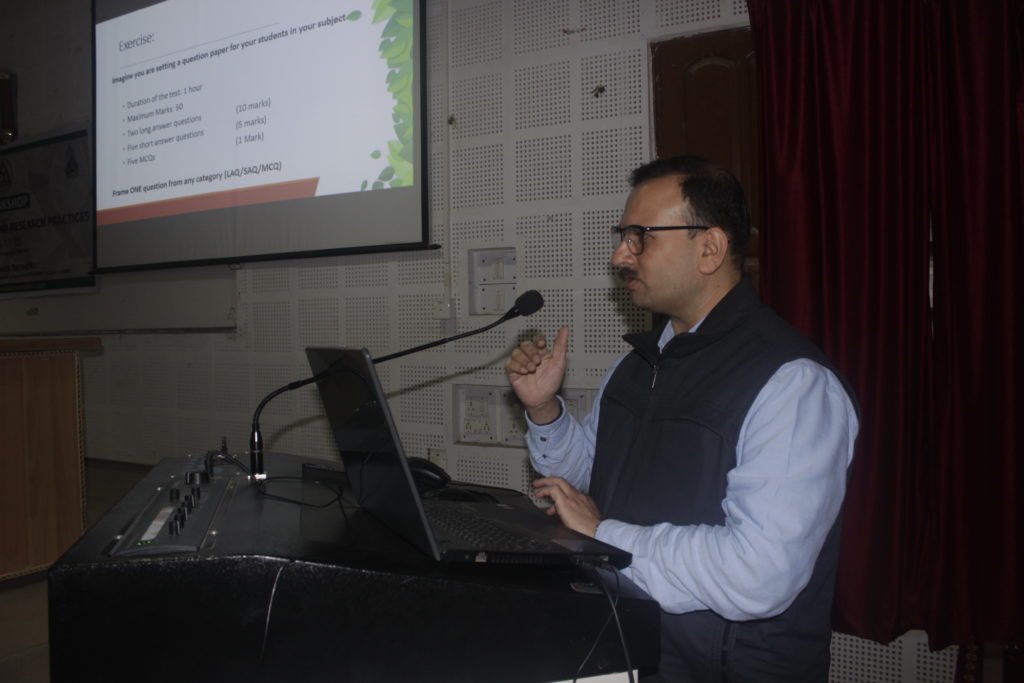 In the next session, Prof. Kishor Patwardhan, coordinator of Ayurveda Network, discussed the essentials of curriculum designing and assessment methods. He demonstrated with examples the ways of preparing a good curriculum. He explained how the syllabus is often confused with the curriculum. Taking help from the popular educational frameworks for learning, he described the distinction between Knowledge-Skills and Attitude domains of learning. He described the use of different levels of Bloom’s taxonomy in framing the questions for assessment. He also discussed the usefulness of Miller’s pyramid in framing a competency-based curriculum. He demonstrated how all these aspects can be incorporated into Ayurveda curricula of graduate and post-graduate level.
In the next session, Prof. Kishor Patwardhan, coordinator of Ayurveda Network, discussed the essentials of curriculum designing and assessment methods. He demonstrated with examples the ways of preparing a good curriculum. He explained how the syllabus is often confused with the curriculum. Taking help from the popular educational frameworks for learning, he described the distinction between Knowledge-Skills and Attitude domains of learning. He described the use of different levels of Bloom’s taxonomy in framing the questions for assessment. He also discussed the usefulness of Miller’s pyramid in framing a competency-based curriculum. He demonstrated how all these aspects can be incorporated into Ayurveda curricula of graduate and post-graduate level.
In the third session, Prof. Rastogi covered the essentials of planning the post-graduate and doctoral levels of the research. He described various guidelines that a teacher must consider before planning a research work. He discussed various important guidelines issued by the Central Council of Indian Medicine, University Grants Commission, ICMR and other regulatory agencies from time to time regarding research proposals in academic institutions. He also described how unethical practices such as publishing with low-quality journals, publishing plagiarised material etc are to be avoided. He highlighted some of the commonly ignored essential steps while designing a study such as registering a clinical trial with the Clinical trial registry of India (CTRI), obtaining written informed consent etc.
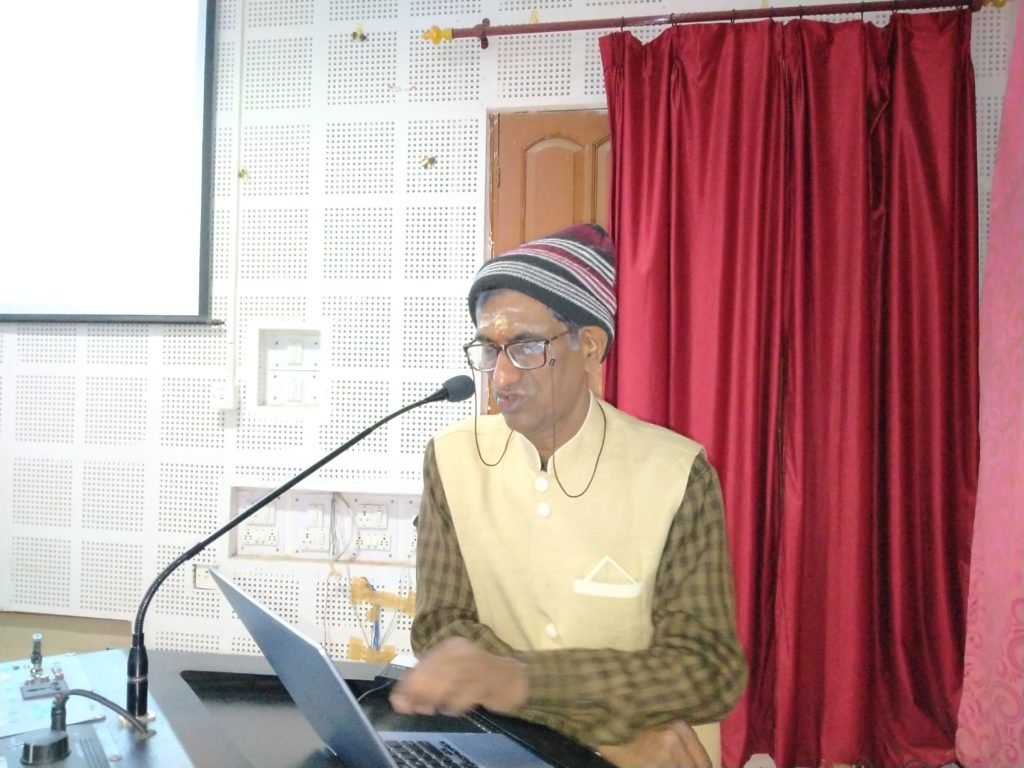
The next session was conducted by Dr. KHHVSSN Murthy, Associate Professor, Department of Kaya Chikitsa and co-coordinator of Ayurveda Network. He delved on Good Clinical Practice Guidelines applicable to various kinds of clinical trials involving Ayurveda interventions. He discussed the historical aspects of the evolution of the studies on human subjects while explaining how faulty and unethical practices in the past led to the formulation of various declarations and guidelines. He described the ethical aspects involved in clinical trials. He also explained different phases of clinical trials applicable in Ayurveda research using AYUSH guidelines.
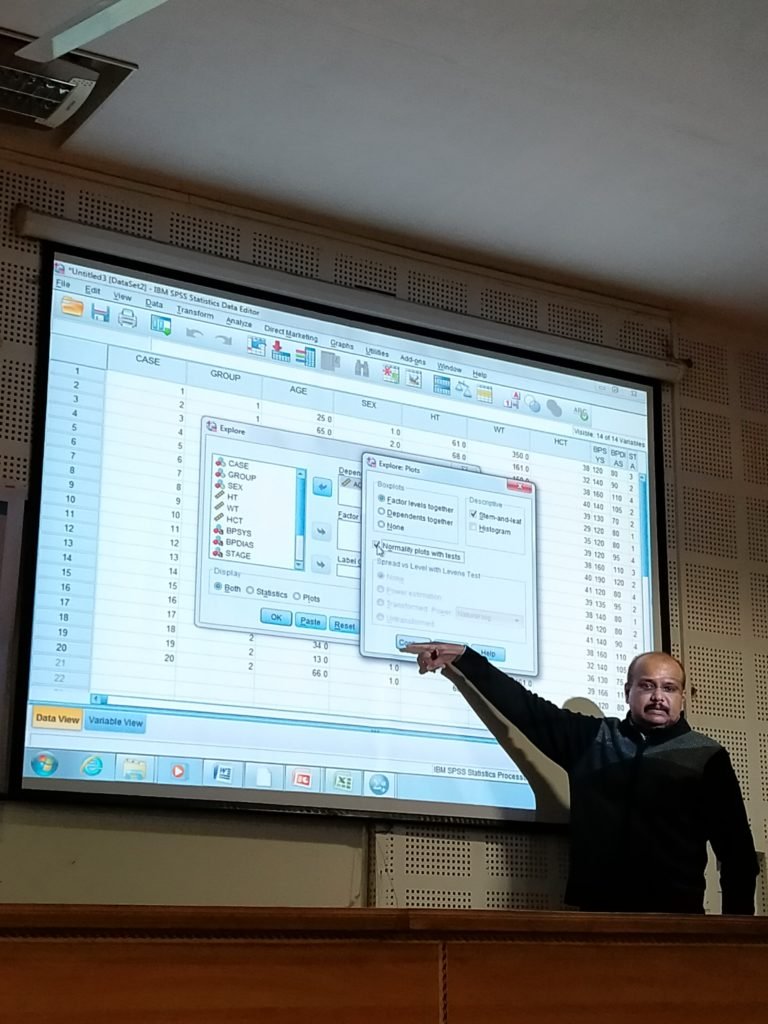
The fifth session of the day was focused on the essentials of biostatistical methods and commonly used tools to carry out statistical analysis. Dr. Alok Kumar, Associate Professor from the Department of Statistics, Institute of Science, Banaras Hindu University, handled this session. He started the session by demonstrating the correct ways of data-entry on a spreadsheet. He then went on to describe the common methods and tests employed while analyzing the routine data concerned with biomedical research. He explained how and when to use the different parametric tests and non-parametric tests while also explaining the correct methods to see if the distribution of data is normal or not. He demonstrated the methods of using different statistical tools such as MS Excel and SPSS by applying different tests on different data sets.
17th January 2020
The second day of the workshop began with a demonstration of the use of various web-based platforms useful in teaching and research. Prof. Kishor Patwardhan engaged this session and demonstrated the use of Google Scholar, PubMed, Scopus, Web of Science, Publons and other similar platforms. He explained the method of calculating several indices such as h-index, i10 index etc. He explained in detail using suitable examples to show how Scopus can be used to analyze the publication profile of an author as well as of an institution. He explained the use of different criteria of searching the relevant literature on PubMed, PubMed Central, Medline etc.
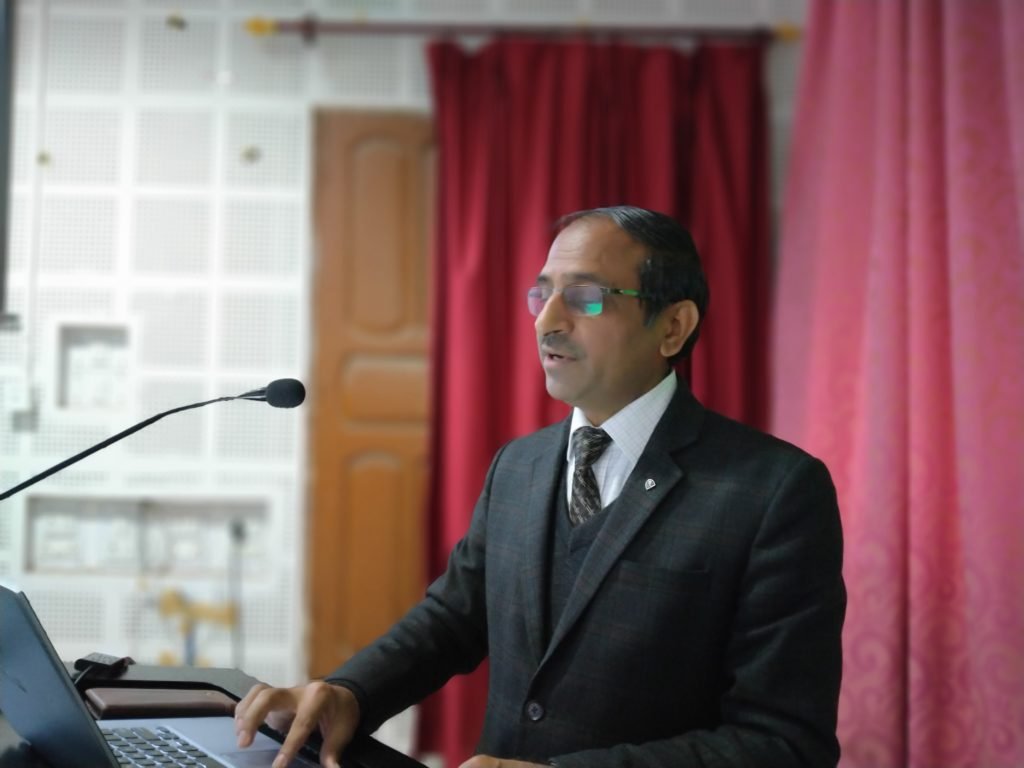
The second session was handled by Dr. Manoj Kumar, Associate Professor, Department of Shalakya Tantra and the co-coordinator of Ayurveda Network. His talk was on the effective ways of using digital tools in day-to-day teaching. He demonstrated how certain tools such as QR Code, Google Forms, Google Sheets etc can be used to administer MCQs / tests in the classrooms and how a teacher can compute the results and communicate them among the students effectively and quickly without using any traditional form of question papers and answer sheets. He also demonstrated the use of Google Forms and Google Documents for collaborative learning. Using some features such as mail-merge in creating documents, the right ways of preparing a structured document were other aspects that he covered.
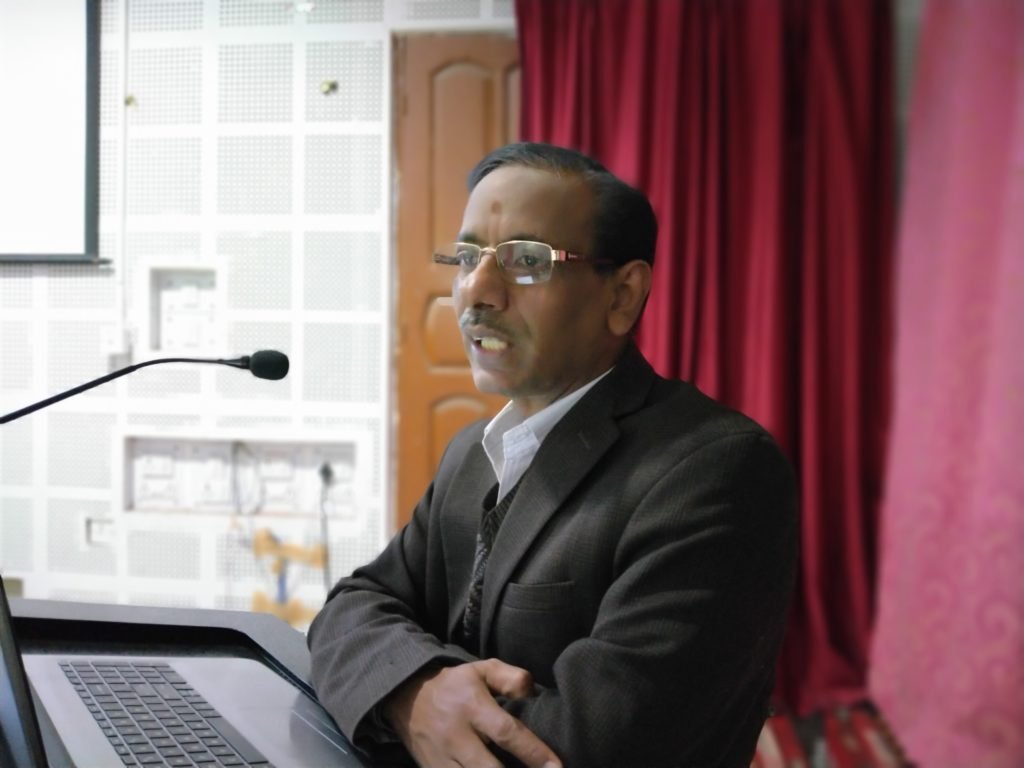 The third session of the day involved a demonstration of the use of different open-source software in routine teaching and using reference management tools. Sri Duvvuri Venu Gopal, Deputy Registrar (Development), BHU was the resource person who conducted this session. He demonstrated the use of several substitutes for commonly used proprietary software and explained the worth of using such platforms. He delved on the historical aspects involved in the evolution of the open-source movement. He demonstrated the use of some useful tools available for reference management such as Mendeley and JobRef. He demonstrated how one can insert references in the text using these tools and populate the bibliography section in the desired referencing style. He also demonstrated the method of using Unicode fonts for Indian languages including Hindi.
The third session of the day involved a demonstration of the use of different open-source software in routine teaching and using reference management tools. Sri Duvvuri Venu Gopal, Deputy Registrar (Development), BHU was the resource person who conducted this session. He demonstrated the use of several substitutes for commonly used proprietary software and explained the worth of using such platforms. He delved on the historical aspects involved in the evolution of the open-source movement. He demonstrated the use of some useful tools available for reference management such as Mendeley and JobRef. He demonstrated how one can insert references in the text using these tools and populate the bibliography section in the desired referencing style. He also demonstrated the method of using Unicode fonts for Indian languages including Hindi.
The last session was on the essentials of journal metrics which was conducted by Prof. Kishor Patwardhan. He delved on the distinct models of publishing such as traditional journals and Open Access journals. While explaining how the open-access movement in science has enabled an extensive reach of science to the masses, he also explained the modes of misuse of this model by various small-scale publishers. He described how mushrooming of sub-standard journals has brought disrepute to Indian science. While explaining different journal metrics such as Impact Factor, Cite Score, Scimago Journal Rank he cautioned against misleading metrics such as Universal Impact Factor, SJIF Impact Factor, Global Impact Factor etc. He explained the easy ways of identifying credible journals in any field of biomedical science.
The certificates to the participants were distributed by Prof. OP Singh, Head of the Department of Kaya Chikitsa. The participants gave their feedback and shared their views on the workshop. Many participants expressed their feeling of appreciation about the complete utilization of time where no inaugural or valedictory ceremonies were organized.
List of Participants
| Name | Name of the Department | Designation |
| Dr. Neha Garg | Medicinal Chemistry | Assistant Professor |
| Dr. Lakshmi | Rachana Sharir | Assistant Professor |
| Dr. Anurag Pandey | Vikriti Vigyan | Assistant Professor |
| Dr. Ajai Kumar Pandey | Kaya Chikitsa | Assistant Professor |
| Dr. Meenakshi Singh | Medicinal Chemistry | Assistant Professor |
| Dr. Preeti Chouhan | Prasuti Tantra and Striroga | Assistant Professor |
| Dr. Akshata Nara | Shalakya Tantra | Assistant Professor |
| Dr. Shikha Singh | Prasuti Tantra and Striroga | Assistant Professor |
| Dr. Vandana verma | Kriya Sharir | Assistant Professor |
| Dr. Aparna Singh | Kriya Sharir | Assistant Professor |
| Dr. Mamta Tiwari | Svasthavritta | Assistant Professor |
| Dr. Laxmi Narayan Gupta | Rasashastra and Bhaishajya Kalpana | Assistant Professor |
| Dr. Rashmi Gupta | Shalya Tantra | Assistant Professor |
| Dr. Rani Singh | Siddhant- Darshan | Associate Professor |
| Dr. Rohit Sharma | Rasashastra and Bhaishajya Kalpana | Assistant Professor |
| Dr. Kanchan Chowdhury | Svasthavritta | Assistant Professor |
| Dr. Devanand Upadhyay | Siddhant- Darshan | Assistant Professor |
| Dr. Shalini | Kaya Chikitsa | Assistant Professor |
| Dr. Mridulata Maurya | Shalakya Tantra | Assistant Professor |
| Dr. Ashutosh Kumar Pathak | Rachana Sharir | Assistant Professor |
| Dr. Sanjeev Kumar | Dravyaguna | Assistant Professor |
| Dr. Kalpana Patni | Kaumarabhritya-Balaroga | Assistant Professor |
| Dr. Bhola Nath Maurya | Sangyaharan | Assistant Professor |
| Dr. Ringzin Lamo | Agada Tantra | Assistant Professor |
| Dr. Sanath Kumar T | Agada Tantra | Assistant Professor |
| Dr. Vaibhav jaisawal | Kaumarabhritya-Balaroga | Assistant Professor |
| Dr. Ashwini Kumar Kushwaha | Dravyaguna | Assistant Professor |
| Dr. Shilpa Patil | Rasashastra and Bhaishajya Kalpana | Assistant Professor |
| Dr. Binay Sen | Dravyaguna | Assistant Professor |
| Dr. Ravi Shankar Khatri | Kaumarabhritya-Balaroga | Assistant Professor |

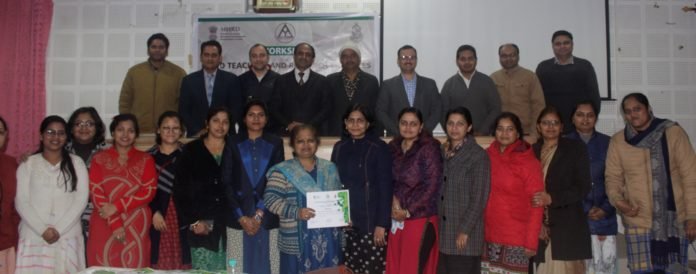

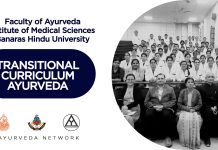


The work shop was very good. Knowledge of h-index,scopus,web of sciences,plagiarism and impact factor of journals was all good.GCP and CTRI was given.Dr. Sanjeev sirs Panchamahabhoota siddhanta was good . Knowledge about mendeley like soft wares was good.knowledge about how to generate MCQ in spread sheets , power point, how to generate QR Qode , how to evaluate, information regarding google docs,globalization of heading etc was very useful. Hands on training was needed.Repeat of same session every three months is necessary for updation of faculty.